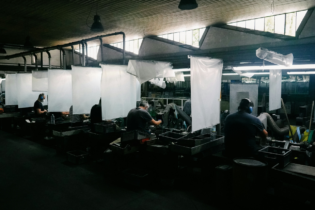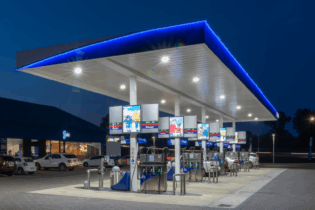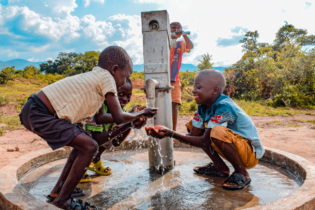Minister of Water and Sanitation Senzo Mchunu, his Deputy Ministers David Mahlobo and Dikeledi Magadzi, and senior officials from the Department of Water and Sanitation (DWS) briefed the Portfolio Committee on Water and Sanitation on key priority infrastructure projects across the country during a virtual meeting last week.
During his opening remarks, Mchunu said most of the priority infrastructure projects are strategic for the development of water resources. Several projects have suffered delays, and as a department, we are trying to resuscitate the projects,” says Mchunu. In the Western Cape, the Raising of Clanwilliam Dam is aimed to provide additional water to improve the assurance of supply for agriculture, provide for water allocations to resource-poor farmers, and to address dam safety aspects. The scope of the work includes the raising of the existing dam wall by 13 meters, the relocation of a section of the N7 directly affected by the raised dam wall and the raising of the secondary provincial roads affected by the Full Supply Level (FSL) in the dam basin. 143 of the envisaged 262 properties have been expropriated. Nooitgedagt Coega Low-Level Scheme (NCLLS) is one of the projects that will augment water supply in the Eastern Cape Province, which is currently experiencing drought in some towns, including Qqeberha (Nelson Mandela Bay). The project entails the construction of a flex mixer, two flocculation channels and settling tanks with six filters. This will increase the capacity of Water Treatment Works from 70 Megalitres per day to 210 megalitres a day. The NCLLS is estimated to cost R534 million upon conclusion. The augmentation project of the James Kleynhans Bulk Water Supply in Makhanda is expected to improve water supply for the region and ensure the security of supply for the long term. The Xhariep Pipeline project in the Free State involves the construction of major water infrastructure (abstraction works, water treatment plants, pump stations and a major pipeline) from the Gariep Dam to Bloemfontein at a cost of approximately R10 billion. Furthermore, some drought interventions have been identified to address the immediate water supply issues for the Free State Province.The Section 63 Vaal Intervention, one of the priority projects in Gauteng, includes the upgrading of water infrastructure, refurbishment, operations and maintenance, sustainability, water conservation, water demand management, and advocacy within the Vaal area.
This is meant to deal with urgent matters relating to the security of supply and more urgently matters relating to the pollution of the Vaal River, and the enhancement of capacity for the embattled Emfuleni Local Municipality. The Umkhomazi Water Project in KwaZulu-Natal will provide water for the Umgeni Water Supply System which is experiencing water shortages. The project consists of the provision of bulk raw water implementation by the Trans Caledon Tunnel Authority (TCTA) and Bulk Potable Water Implementation by Umgeni Water. The project is to be fully funded from loan funding. In Limpopo the construction of the Masodi Wastewater Treatment Works is a multi-year project that was implemented by Mogalakwena Local Municipality (LM), for the construction of a 10Megalitres per day Wastewater Treatment Works, with capacity for expansion to 15 Megalitres per day in future should the need arise. One of the priority projects in the Northern Cape is the Vaal-Gamagara Regional Water Supply Scheme. The project is in the John Taolo Gaetsewe District Municipality. This project entails the functional replacement of the existing steel pipeline with a new pipeline to provide assurance of current and future demands by all users. In North West the Brits Water Treatment Works and associated works is set to boost the water supply for the Madibeng Local Municipality and the surroundings. The DWS construction unit has completed 70% of the civil work in this project. Water supply in Mpumalanga will be enhanced by the Thembisile/Loskop Regional Bulk Water Supply Project. The project is currently at the tender stage. Portfolio Committee members welcomed the presentation and emphasized the importance of timely payments for service providers by implementing agencies. As concluding remarks DWS pledged to strengthen municipal capacity and coordinate projects through several structures, including the District Development Model (DDM) launched by President Cyril Ramaphosa in 2019.






